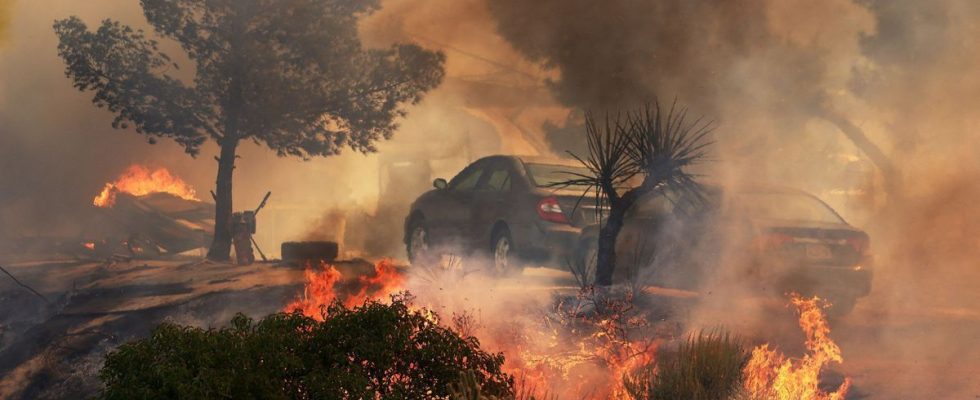Published on
Updated
Reading 2 min.
In the western United States, wildfires are increasing in frequency and intensity. In addition to the disastrous consequences for the environment, a lesser known effect of these extreme climatic events has recently been highlighted by researchers: the increase in cases of consultations for anxiety disorders in hospital emergency departments.
Carried out by the Rollins School of Public Health at Emory University (Georgia, United States), the study explores the association between exposure to wildfires and anxiety disorders. It is based on the analysis of satellite data and medical records from nearly 1.9 million emergency room visits for anxiety disorders made in five states in the western United States (California, Arizona, Nevada, Oregon and Utah) between 2007 and 2018.”Mental health is one of the most prevalent health conditions in the United States and our study found multiple links between wildfires and an association with serious anxiety disorders“, underlines in a statement Qingyang Zhu, PhD, environmental health researcher and lead author of the study.
According to the results published in the journal Nature Mental Health, forest fires would in fact be associated with a 6.3% increase in emergency visits related to mental health. Women, girls, and older adults are most likely to suffer from severe anxiety disorders related to exposure to wildfires. Men and boys are also prone to anxiety, but more so when fires become the main source of ambient pollution in the environment in which they reside, the study notes. In view of these data, the researchers are sounding the alarm: “Our results argue in favor of increased climate awareness and appropriate communication on risks in order to mitigate these new health problems,” conclude these last.
The need to act on the specific question of the link between mental health and climate change is all the stronger as it tends to increase in the regions most exposed to climate change, as is the case in Western United States. Another research published last September in Science Advances notably demonstrated that individuals considered “socially vulnerable” are the most affected by forest fires in this region. This environmental injustice particularly concerns people with reduced mobility, the elderly or those who do not speak English.

